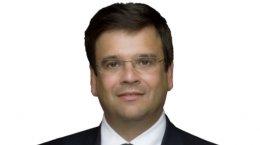Nomura is revamping its international strategy to rein in costs and pursue a more disciplined expansion less than three years after its acquisition of Lehman Brothers’ non-US operations was trumpeted as a springboard to becoming a global financial powerhouse.
The fundamental problem facing Nomura is that its overseas businesses are still not making enough profit in relation to costs.
The Japanese bank’s domestic retail bankers – who earn far less than their foreign colleagues – generate the bulk of profits. The retail division brought in Y101bn ($1.3bn) in pre-tax profits in the year to March 2011, more than 15 times the wholesale division’s contribution of Y6.7bn.
“The overseas investment banking business is just a cost centre,†said a former Nomura executive.
Having failed to make inroads into the US as quickly as hoped, and suffering losses in Europe, the Japanese bank has replaced its gung-ho spirit of 2008 – when it bought the European, Asian and Middle Eastern assets of the failed Lehman – with a more sober strategy, say two people familiar with the new direction.
One said Nomura, faced with radically changed market conditions following the financial crisis, had realised that it “needed to be much more disciplined†about its ambitions.
Jesse Bhattal, head of Nomura’s wholesale division, this year hinted at the shift when he said Nomura had to move from “a broad growth strategy to a very calibrated approach†that focused on profits.
When the bank releases its results for the first quarter of the fiscal year on Friday, it is expected to announce as much as a further $500m in cost paring, say people familiar with the plans. A Nomura spokesman said the bank was not scaling back its ambitions: “Our strategy remains unchanged and we are committed to building a competitive global investment bank.â€
Nomura hoped the Lehman deal would help propel it into the ranks of bulge-bracket investment banks. Takumi Shibata, chief operating officer, epitomised its confidence with his declaration that “100 per cent, we are winners in the makingâ€.
Undoubtedly, the Lehman deal has brought benefits. Nomura has diversified its senior management, building a team with more international experience. A third of senior managing directors and board members are now not Japanese.
However, after taking on expensive Lehman bankers and hiring aggressively overseas, it has found itself saddled with high costs and low profitability. Tellingly, its share price has fallen about three-quarters since it bought Lehman’s non-US assets in September 2008.
Net profits for the fiscal year to March 2011 were a meagre Y28.7bn compared with Y175.8bn in fiscal 2007. Return on equity has declined from 8.3 per cent to a paltry 1.4 per cent over the same period.
“They were expanding without thinking in a disciplined way about profit returns,†says one person familiar with the situation. Nomura has slowed its rapid growth, which saw staff numbers rise from about 18,000 in 2008 – before the Lehman deal – to just under 27,000 in March.
The bank has managed to reduce the proportion of revenues eaten up by expenses over the past year in the wholesale division. The unit’s cost-to-income ratio ran at an unsustainable 138 per cent at the end of June 2010. By the end of March 2011 it fell to 99 per cent, still higher than rivals.
In its bid to become a global contender, Nomura has suffered from the fact that Lehman’s overseas divisions depended on the bank’s US operations – which were bought by Barclays – to generate business, say two former senior Nomura officials.
It has failed to capitalise on the woes of its overseas competitors, many of which rebounded from the crisis more quickly than expected.
While the US business is profitable, it is still dramatically sub-scale to international rivals, say analysts.
“It’s a long road to build out a material US franchise, to go beyond servicing just Japanese clients,†said Brad Hintz, analyst from Sanford C Bernstein. “It’s the classic problem of Wall Street: All these (investment banking) businesses are tied together like bungie cords. You can’t do one without the other, and yet profitability comes from only a select few.â€
While a stronger US presence is crucial to fulfilling its ambitions, senior executives in Tokyo have lost their appetite for a game-changing acquisition in the US as market conditions have soured, say London-based Nomura bankers.
Europe is a big part of that problem, Nomura executives admit.
Last year, the bank reported Y10bn to Y15bn in quarterly losses in Europe, which offset profits made back in Japan, according to Citigroup’s Makoto Kasai in Tokyo. “It is like they are sending living expenses to the prodigal son overseas,†said one of the former senior officials.
In April, Kenichi Watanabe, chief executive, stressed that the European unit had to improve, after placing Mr Bhattal in charge of wholesale operations. “If Mr Bhattal fails to turn around the global operations this year, he is not going to get another year,†says Hideyasu Ban, analyst at Morgan Stanley MUFG Securities in Tokyo.
Additional reporting by Justin Baer in New York.
More News From Financial Times





